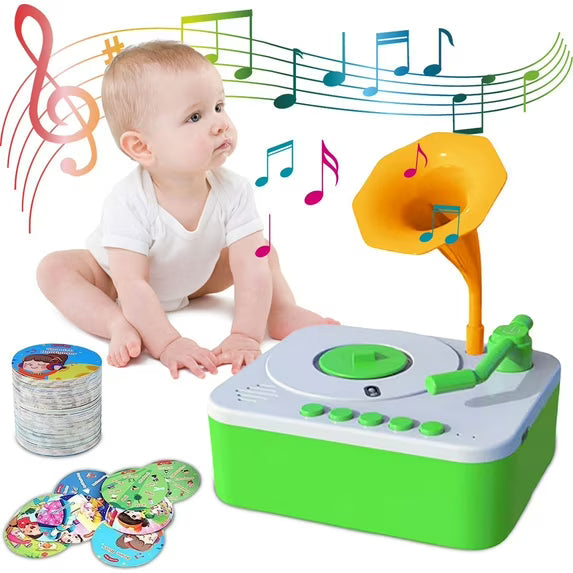
Why Music, Rhymes & Fables Should Be a Daily Part of Your Baby’s Routine
Share
Introduction
Every giggle, every sway, every tiny clap — babies are born with a natural rhythm. Long before they speak, they respond to music, melody, and rhythm. Science now confirms what Indian parents have known for generations: music and stories are not just entertainment — they’re essential for a child’s early brain development.
In today’s screen-heavy world, introducing your baby to rhymes, fables, and music creates a nurturing bond while building lifelong learning habits. Let’s explore why these simple activities are the most powerful tools you can add to your little one’s daily routine.
1. Music Builds Brain Power
Music stimulates multiple parts of the brain at once — especially those linked to language, emotion, and memory. When your baby hears a familiar tune or rhyme:
- Their brain learns pattern recognition (key for early math and speech).
- The rhythm builds listening skills and helps in language comprehension.
- Gentle melodies create emotional calmness, lowering stress and improving sleep.
🧠 Studies show that babies who listen to music regularly have stronger memory recall and emotional balance later in life.
2. Rhymes Strengthen Language & Communication
Those classic nursery rhymes aren’t just catchy — they’re a foundation for speech development.
- Repetition in rhymes improves vocabulary and pronunciation.
- The playful rhythm teaches sentence structure and phonics naturally.
- Singing together helps babies connect emotionally with caregivers.
💬 Try singing “Twinkle Twinkle Little Star” or “Lakdi ki Kaathi” daily — soon you’ll see your baby respond with gestures, smiles, or even little hums!
3. Fables & Stories Teach Values and Imagination
Indian folktales, Panchatantra stories, and moral fables introduce babies to a world of imagination.
- They nurture empathy, kindness, and cultural roots.
- Simple characters like the clever crow or brave lion teach cause and effect through fun narratives.
- Listening to stories boosts attention span and creative thinking — two traits that last well beyond childhood.
📚 Even five minutes of storytelling before bed can turn into your baby’s favorite moment of the day.
4. Why It Should Be a Daily Routine
Consistency is key. A short, musical bedtime or morning ritual signals safety, comfort, and love. Babies thrive on routine because it helps them predict what comes next — making them feel secure and confident.
A typical “musical moment” routine could include:
🎵 Morning – Soft background music while feeding or playtime
🎶 Noon – Rhymes or sing-alongs during bath time
📖 Night – A gentle fable or lullaby before sleep
5. Make Every Day Musical with PiK A BOO’s Gramophone
At PiK A BOO, we designed the Kids Gramophone to make this daily routine magical.
It’s not just a toy — it’s a complete music and story companion for infants and toddlers.
🎧 Features:
- Plays 96 beautiful slides of stories, rhymes, music, and fables
- Promotes screen-free engagement and language learning
- Encourages parent–child bonding through interactive play
- Can also record voice, letting parents personalize story time
💛 It’s a perfect blend of learning and nostalgia — bringing back the joy of traditional storytelling in a modern, child-safe way.
Conclusion: A Symphony of Growth
Music, rhymes, and fables are more than just fun — they are the building blocks of emotional and cognitive growth. When made part of your baby’s everyday life, they help shape a confident, happy, and expressive child.
So tonight, instead of scrolling or switching on a cartoon, turn on the PiK A BOO Gramophone. Let your baby’s world fill with rhythm, melody, and magic — one story at a time.
https://pikabooindia.com/products/pik-a-boo-phonogram-for-kids-assorted-colors-fun-learning-toy-for-early-language-skills?_pos=1&_sid=f997e3583&_ss=r
